
Regina Anderson Andrews
Harlem Renaissance Librarian
Regina Anderson Andrews
Harlem Renaissance Librarian
ETHELENE WHITMIRE
University of Illinois Press
URBANA, CHICAGO, AND SPRINGFIELD
2014 by the Board of Trustees of the University of Illinois
All rights reserved
Manufactured in the United States of America
c 5 4 3 2 1
 This book is printed on acid-free paper.
This book is printed on acid-free paper.
Library of Congress Cataloging-in-Publication Data
Whitmire, Ethelene, 1968
Regina Anderson Andrews, Harlem Renaissance
librarian / Ethelene Whitmire.
pages cm
Includes bibliographical references and index.
ISBN 978-0-252-03850-1 (hardback : acid-free paper)
ISBN 978-0-252-09641-9 (ebook)
1. Andrews, Regina. 2. Library directorsUnited StatesBiography. 3. African American women librariansUnited StatesBiography 4. New York Public Library. 135th Street BranchBiography. 5. Harlem Renaissance. 6. Harlem (New York, N.Y.)Intellectual life. 7. African AmericansNew York (State)New YorkIntellectual life. 8. African American theaterNew York (State)New YorkHistory20th century. 9. Discrimination in employment.
I. Title.
Z720.A63W48 2014
025.1'97092dc23 2013039074
In loving memory of my father, Dennis Johnnie Whitmire
For my mother, Valerie Irene Whitmire, who introduced
me to the wonderful world of libraries
Contents
Acknowledgments
I would like to especially thank Raquel Von Cogell and Dr. Cherene Sherrard-Johnson, who enthusiastically supported this project during the entire journey.
I began this journey as an assistant professor at University of CaliforniaLos Angeles (UCLA) Department of Information Studies. Crucial support came from Dean Aimee Doerr and the Graduate School of Education and Information Studies and from Chair Anne Gilliland and Professor Mary Niles Maack. Research funds supported Dalena Hunter, my former research assistant, who was there from the beginning. We traveled to Harlem for the first official research trip to the Schomburg Center for Research in Black Culture, where Steven Fullwood provided critical support. We stayed in a wonderful brownstone bed-and-breakfast decorated like the Harlem Renaissance period, which inspired the decoration of my home office for this project. Additional assistance was provided by Thomas Lannon and Laura Ruttum, from the Manuscripts and Archives division of the Stephen A. Schwarzman Building of the New York Public Library.
I received research support from several sources: The Gilder Lehrman Institute of American Historys Scholarly Fellowship; the University of WisconsinMadisons Graduate School and the Vilas Associate Award; the University of WisconsinSystems Institute for Race & Ethnicity grant; University of WisconsinMadisons Center for Research on Gender & WomensFeminist Scholars Fellowship, which gave me an additional semester to write, along with the Faculty Sabbatical Leave Program for the entire 20092010 academic year.
I would like to thank the University of Illinois Press staff, especially my editor, Larin McLaughlin, and Dawn Durante and Roberta Spartenburg, who .
During research visits to the New York City area, I was provided support and nice meals from my family, including my sister, librarian Denise Whitmire OShea, brother-in-law, Neal OShea, and niece, Maura OShea; my brother Darren Whitmire; and especially my mother, Valerie Whitmire, who provided copious cups of coffee. My cousin Kevin Whitmire helped me search for Andrewss homes and workplaces in New York City. Dr. Furaha Norton drove me to Wilberforce University to see where Regina went to college, the dorm where she resided, and the Carnegie Library where she worked. Officer Herman B. Mann of Wilberforce was an excellent guide and university historian.
Members of my seminar section, seminar leader Susan Ware, and guest Nancy Hewitt, at the 2007 Radcliffe/Schlesinger Librarys Writing Past Lives: Biography as History Seminar on Gender History, gave critical feedback during my presentation on what is now about the Harlem Experimental Theatre. Nancy Beckett, instructor for the University of Wisconsins Writers-By-The-Lake Creative Non-Fiction course, and my fellow students also provided important encouragement.
In my department at the University of WisconsinMadisons School of Library and Information Studies, Chairs Louise Robbins and later Christine Pawley provided support along with Professor Emeritus Wayne Wiegand.
Duke Universitys Center for Documentary Studies Summer Video Institute, Joe Lambert from the Center for Digital StorytellingBerkeley, and the Digital StoryLab in Copenhagen, Denmark, helped me to visualize Reginas story in a different medium. Student Alexandra Al Ritchie from the Undergraduate Research Scholars at the University of WisconsinMadison edited the digital stories I created for each chapter of the book.
University of WisconsinMadisons librarian, Emilie Ngo-Nguidjol Songolo, negotiated access to the ProQuest Historical Black Newspapers database. Morag Walsh, Senior Archival Specialist, Special Collections and Preservation Division, Chicago Public Library provided additional assistance about Reginas early library career at her institution.
I had the opportunity to present portions of this project in a variety of settings, including Greg Downeys History of American Librarianship and Cherene Sherrard Johnsons Harlem Renaissance Women Writers classes. Nan Enstad invited me to present to the Program in Gender and Womens History. I presented internationally at the Royal School of Library and Information Science at the Black Diamond in Copenhagen and at the Collegium for African American Research (CAAR) in Paris. The Retired New York Public Librarians in New York City and Kathryn Simmons and Dr. Dianne Hopkins of the Madison African American Genealogy Writing Group invited me to speak. I was also on a panel, Recovering Black Women Writers from the Harlem Renaissance & Beyond, at the Wisconsin Book Festival in 2012.
I enjoyed the hospitality at The Library Hotel in New York City where I stayed numerous times during the project. The book was also partially written in numerous cafes including Barriques in Fitchburg, Wis.; Lovs Bog Caf, Riccos, Caf Plantagen, and the Next Door Cafe in Copenhagen; and various Coffee Bean & Tea Leaf, Starbucks, and Peets in different Los Angeles locations.
Finally, I would like to thank Regina Andrewss family. In Los Angeles in January 2009, I had the pleasure of meeting her niece, Lorelei Simms; her son, Anthony Turner, and his children; her daughters Regina Gibson-Broome and Angelina Turner and their late sister Cynthias son and grandchild; and her cousin Pamela Anderson. I received email correspondence from Reginas grandchildren Robyn and Kim Baptiste.
Regina Anderson Andrews
Harlem Renaissance Librarian
Introduction
I was instantly intrigued and puzzled. Who were they? Why hadnt I heard of these women? I wanted to know more about their lives.
As a female African American former Librarian-in-Residence at Yale University, I was fascinated by these African American women who entered the profession at a time when their numbers were infinitesimal. As I learned more about Regina Anderson Andrews (19011993), she soon emerged as one of the most interesting librarians for several reasons. She defied the stereotype of a spinster, bookish librarian. She cohosted a salon during the Harlem Renaissance and was an active participant in the little theater movement as both an actress and playwright. She had several paramours and at least one was possibly a secretand unlike many of her contemporary white female librarians who were often single and childless, Regina married, like many of the pioneering female African American librarians, including at least fourAugusta Baker (19111998), Jean Blackwell Hutson (19141998), Alethia Annette Phinazee (19201983), and Dorothy Porter Wesley (19051995)who married twice! Unlike schoolteachers, librarians did not have to resign their positions when they married. These women often had children too, and both Regina and Hutson adopted baby daughters. Regina had another admirer after her wedding, but whether or not the liaison was consummated is undetermined. What is known is that several years after declaring his love for her he was executed in his native Russia. During the second half of her library career she was involved in womens and African American civic organizations that led to her traveling to four continents. Finally, pictures of Regina show that she possessed movie star glamourindeed she graced the cover of the
Next page
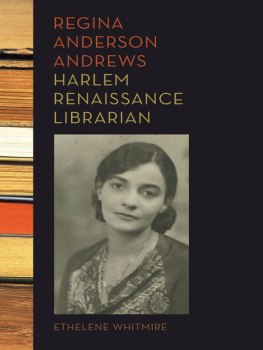

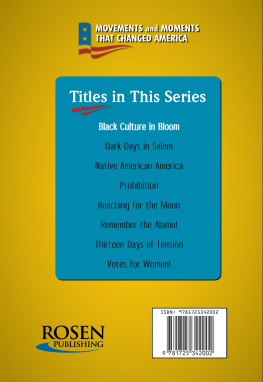
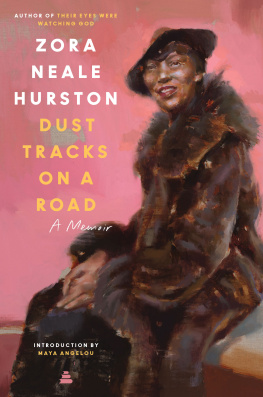
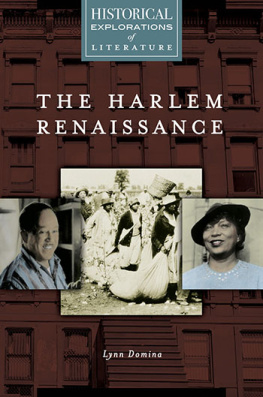
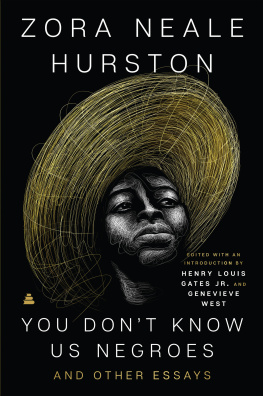
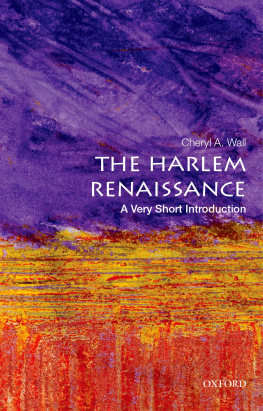

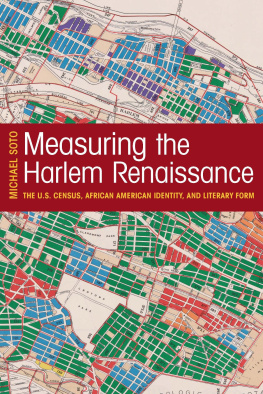
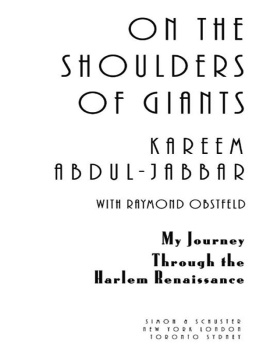

 This book is printed on acid-free paper.
This book is printed on acid-free paper.